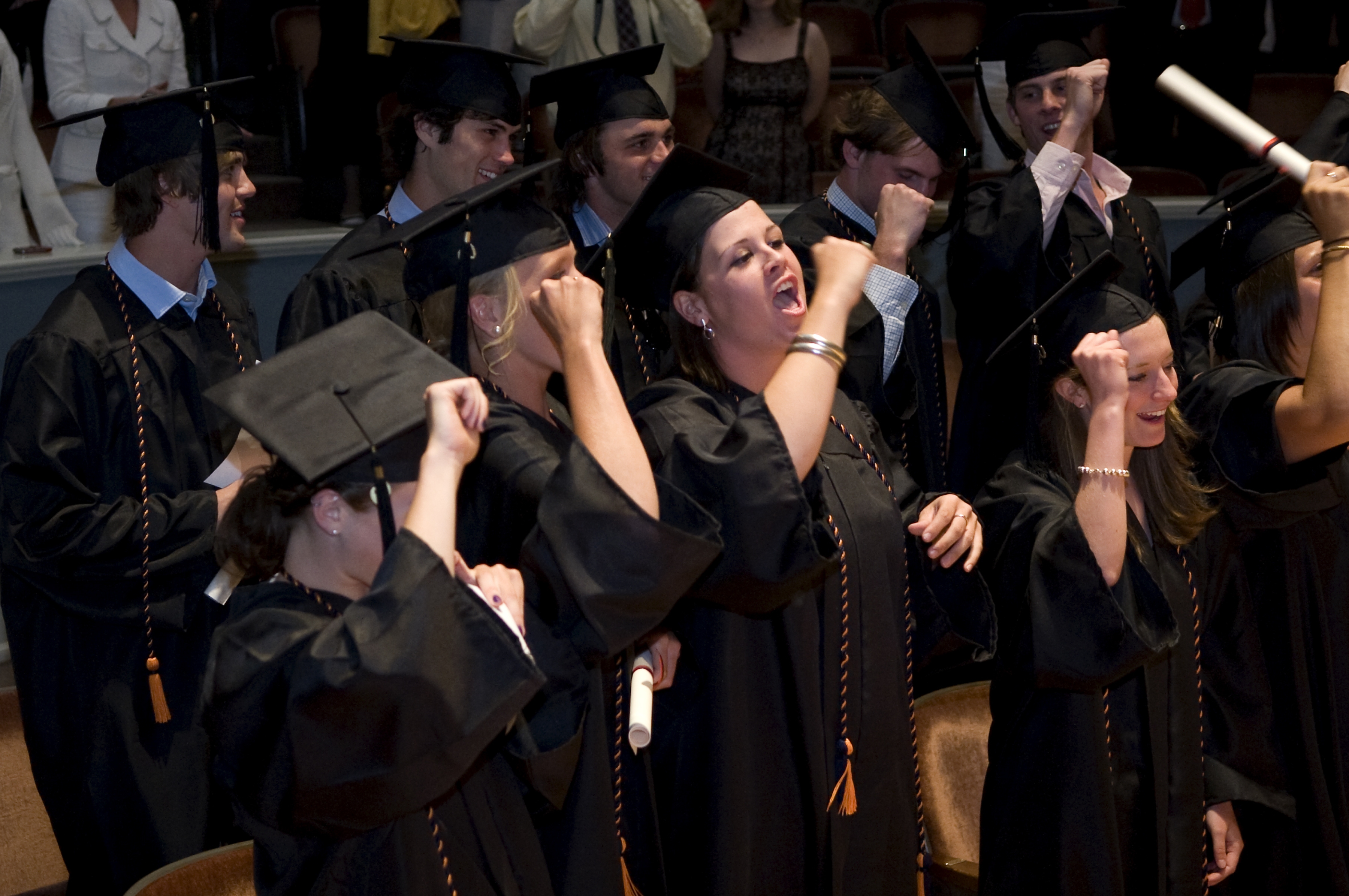Editor’s note, Jan. 23, 2015, 4:15 p.m.: The UVA Today article regarding formation of the Task Force on Academic Integrity in Athletics (below) was originally published Jan. 15. It is being redistributed today with additional context and information, in response to confusion created by recent media coverage.
University of Virginia President Teresa A. Sullivan commissioned the Task Force on Academic Integrity in Athletics in December, charging the group with examining the practices and procedures by which student-athletes are advised and mentored, enrolled in courses and are evaluated.
Sullivan said the eight-member task force was not established in reaction to any institutional issues or concerns, but rather as a way to proactively review the effectiveness of U.Va.’s current support, practices and procedures related to student-athletes and their experiences at the University, and in an attempt to ensure continuous improvement.
The formation of the Task Force occurred during a time in which high-profile issues of academic integrity at some institutions have raised awareness and increased attention on the issue across higher education. In addition, recent media reports have indicated that the NCAA is conducting academic-fraud investigations of 20 institutions.
The University of Virginia is not the subject of any NCAA investigation or review.
Over the course of the last three academic semesters, U.Va. student-athletes have earned an overall grade point average of 3.0. During that time period, 80 percent of student-athletes earned a GPA of 2.5 or better, and 51 percent earned a GPA of 3.0 or better. Also, during the last three academic semesters, 16 Cavalier sports programs have recorded their highest team GPA since the fall of 2003.
Statement of President Sullivan: “Student-athletes at the University of Virginia have consistently excelled both in the classroom and on playing fields. This task force was commissioned not as a reaction to concerns, but rather in an interest to remain thorough and ever-mindful of our primary responsibility as an academic institution.”
Statement of U.Va. Director of Athletics Craig Littlepage: “In light of the recent reports of academic impropriety at institutions across the country, the task force will provide a great opportunity to examine the practices we have in place to make sure they are consistent with our pursuit of academic excellence. Our student-athletes have performed at a high level in the classroom and we want to make sure this success not only continues in the future, but is consistent with the goals for academic accomplishment the University has in place for every student.”
Statement of Carolyn Callahan, professor of education and U.Va.’s faculty representative to the ACC and NCAA: “The University of Virginia places tremendous emphasis on academics for its student-athletes. I’ve worked with student-athletes and staff in athletics for a long time and their accomplishments are the result of hard work and a dedication to be successful. I expect the task force to yield ideas to help ensure the ongoing improvement of educational opportunities for U.Va. student-athletes.”
# # #
In the wake of investigations into academic improprieties involving student-athletes at other universities, University of Virginia officials will conduct an internal review to ensure that the University’s athletics programs are continuing to meet the high academic standards that are expected at U.Va.
“It’s a wonderful idea to look into it when there’s not any glaring need for it,” said U.Va. law professor Alex Johnson, who is chairing a new task force charged with examining the practices and procedures by which student-athletes are advised and mentored, enrolled in courses and evaluated.
U.Va. President Teresa A. Sullivan commissioned the Task Force on Academic Integrity in Athletics last month.
“I believe that we have a good system in place for ensuring academic integrity in athletics, yet even good systems experience failures in implementation,” said Sullivan. “The task force is charged with examining our system for such issues and, if appropriate, making recommendations for change.”
The seven-member task force, which includes faculty and staff members and a student-athlete, is expected to report by June 30. Johnson hopes to schedule a first meeting before the end of January.
The panel will examine whether the University is delivering “the education part of being a student-athlete,” Johnson said. Task force members will likely review University policies and Atlantic Coast Conference and National Collegiate Athletics Association policies, and talk with academic advisers, past and present student-athletes and other faculty members, likely enlisting the aid of the Faculty Senate.
“The more input we receive, the better,” Johnson said.
The task force members are:
- Alex Johnson (chair), James C. Slaughter Distinguished Professor of Law and director of the Center for the Study of Race and Law;
- Carolyn Callahan, Commonwealth Professor of Education in the Curry School of Education and the University’s faculty representative to the ACC and NCAA;
- Michael Citro, director for external relations, Office of the President;
- R. Edward Freeman, University Professor and Elis and Signe Olsson Professor of Business Administration, Darden School of Business;
- Rachel Most, professor of anthropology and assistant dean for undergraduate academic programs in the College of Arts & Sciences;
- Peter Norton, associate professor of science, technology and society, School of Engineering and Applied Science;
- Brian Pusser, associate professor and program coordinator in higher education, Curry School;
- and Brett Lisle, a fourth-year student, Lawn resident and former pitcher on the U.Va. baseball team.
Media Contact
Article Information
January 15, 2015
/content/task-force-conduct-pre-emptive-review-state-academics-and-athletics

